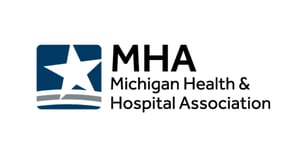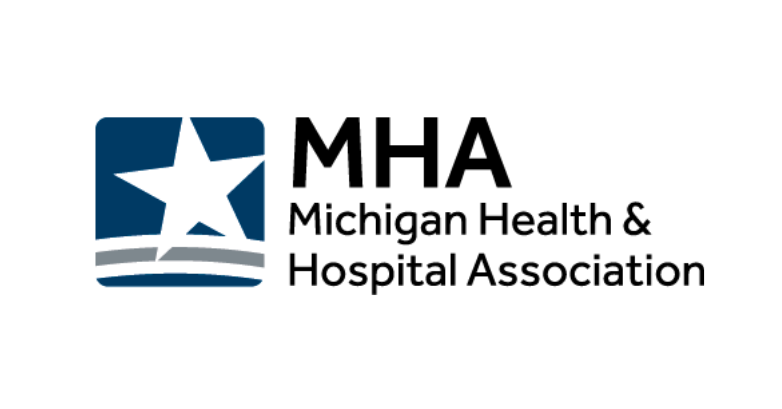
As Respiratory Viruses Circulate, Michigan Hospitals Urge Vigilance, Prevention
LANSING, Mich. — Michigan children’s hospitals and pediatric healthcare leaders are raising awareness about a pediatric hospital bed shortage and urging the public to help prevent respiratory illnesses, which are rapidly spreading in the form of respiratory syncytial virus (RSV) and influenza.
Michigan pediatric intensive care unit hospital beds are currently 89% occupied, according to data from the Michigan Health & Hospital Association (MHA) and Michigan Department of Health & Human Services (MDHHS). Hospitals are also reporting large surges in young patients visiting emergency departments, for both emergent and non-emergent care. Hospitals are urging those with mild cold-like symptoms to stay at home. If symptoms worsen, an urgent care or primary care physician’s office would be the most appropriate setting to seek care, while emergency department visits should be reserved for those with moderate to severe symptoms including shortness of breath. Wait times and patient volumes in emergency rooms are increasing, and emergency department capacity in some areas is being depleted by visits for non-emergency medical conditions. Pervasive hospital staff shortages further complicate surges in hospital visits.
These pediatric bed shortages are impacting care statewide, making transfers of the sickest young patients to higher acuity care settings difficult.
“Hospitals are here for Michiganders, particularly in emergencies,” said Gary Roth, DO, chief medical officer, MHA. “But our capacity to provide pediatric hospital care is extremely strained. Right now, the staffing challenges we have been sounding the alarms about all year combined with rapid spread of respiratory illnesses are impacting our hospitals’ ability to care for our sickest children in a timely manner.”
The MHA and the MDHHS are monitoring the pediatric bed capacity among Michigan hospitals. Nationally, the U.S. Department of Health and Human Services data shows that 76% of pediatric beds across the country are full, with anecdotal reports largely pinning the shortage on widespread RSV infections.
"Many of us in the pediatric medical community across Michigan are working to care for the surge of children battling RSV," Matthew Denenberg, MD, chief of pediatrics, Corewell Health East, the new name for Beaumont Health, and chair of the MHA's Council on Children's Health. "Our teams are here to help when the illness becomes severe. Parents and guardians can also help stop the spread of illness in our communities by getting children vaccinated against both flu and COVID-19. We all need to work together to keep our children safe."
“In recent weeks we have seen a significant surge in cases of RSV which is most greatly impacting our infants and young children,” said Rudolph Valentini, MD, chief medical officer, Children’s Hospital of Michigan. “Since Oct. 1, more than 450 patients have tested positive for RSV at our hospital. This is putting a strain on our hospital’s emergency department and inpatient bed capacity; further, this could intensify if influenza cases begin to rise in the near future. It is also important to note that RSV and its associated bronchiolitis cause symptomatic disease in 20% of infants and children less than one year of age. Although RSV may only cause a mild cold in older children and adults, it is important for parents to keep their infants and young children away from others who are ill, because RSV causes inflammation to the smallest airways making infants especially vulnerable sometimes resulting in hospitalization or ICU care. Other patients who need to avoid RSV are children with a history of prematurity, chronic lung disease, congenital heart disease, immunodeficiency or solid organ transplant.”
“As we see this concerning trend in high volumes of pediatric emergent care and hospitalizations, we need to all work together to protect our children and conserve resources. Pediatric beds are a shared resource across the state,” stated Christine Nefcy, MD, chief medical officer, Munson Healthcare. “Many smaller community or rural hospitals in Michigan have minimal pediatric bed capacity and rely on other facilities for higher level or specialty care for these patients. At this time of year, we naturally want to gather more often with family and friends; so as you make plans, we urge parents to follow these guidelines to ensure we manage this surge using all the tools at hand.”
“We are urging Michiganders to have a plan for their families this respiratory season to help prevent hospital overcrowding and prevent outbreaks of respiratory illnesses using the tools available,” said Dr. Natasha Bagdasarian, the state’s chief medical executive. “This includes getting available vaccines, staying home if unwell, having a supply of masks at home, covering coughs, washing your hands often and finding out if you are eligible for treatment options if you do become unwell.”
The MHA and its pediatric clinical leaders and partners offer the following tips for the public:
- DON'T: Seek hospital emergency care for non-emergency medical conditions, such as mild symptoms and routine testing.
- DO: Seek hospital emergency care if symptoms are worrisome and emergency care is needed. Emergency medical conditions can include difficulty breathing, dehydration and worsening symptoms.
- DO: Immediately get vaccinated against respiratory illnesses. Visit www.vaccines.gov to search for vaccine availability or call your provider or the local health department.
- DO: Be patient if seeking care through a hospital emergency department. Consider that wait times may be elevated as respiratory illnesses reach seasonal peak levels.
- DO: Consider having your children wear a mask in public places including school when you know local case rates of respiratory illnesses are high.
- DO: Practice frequent and proper hand washing and stay home if you’re not feeling well.
Additional information:
Influenza is a viral respiratory illness with symptoms that include fever, cough, stuffy or runny nose, sore throat, headache, chills and fatigue. A flu test is not always needed to diagnose the flu, however in some cases it may be recommended by a healthcare provider. People at risk of complications should consult their healthcare provider.
RSV infection is a viral respiratory illness that usually causes mild, cold-like symptoms. Most people recover in a week or two, but RSV can be serious, especially for infants and older adults. Symptoms include runny nose, decreased appetite, coughing, sneezing, fever and wheezing.
Reporters may contact the following representatives from the Pediatric Leadership Collaborative to schedule interviews:
Natasha Bagdasarian, MD, MPH, FIDSA, Chief Medical Executive, State of Michigan
Media Contact: Lynn Sutfin, SutfinL1@michigan.gov
Francis Darr, MD, Pediatrician, UP Health System - Marquette
Media Contact: Janell Larson, Janell.Larson@mghs.org
Marcus DeGraw, MD, Chairman, Department of Pediatrics, Ascension St. John Hospital St. John Children’s Center
Media Contact: Airielle Taylor, airielle.taylor@ascension.org
Matthew Denenberg, MD, Chief of Pediatrics, Corewell Health East
Media Contact: Mark Geary, mark.geary@beaumont.org
Michael Fiore, MD, Medical Director, Pediatric Intensive Care Unit, Covenant Healthcare
Media Contact: Kristin Knoll, kknoll@chs-mi.com
Steven Martin, MD, E.W. Sparrow Hospital, Interim Chief Medical Officer & Co-Director of University of Michigan Health at Sparrow Children’s Center, Sparrow Health System
Media Contact: John Foren, John.Foren@Sparrow.org
Kimberly Monroe, MD, MS, Interim Chief Clinical Officer, C.S. Mott Children’s Hospital & Von Voigtlander Women’s Hospital
Media Contact: Beata Mostafavi, bmostafa@med.umich.edu
Christine Nefcy, MD, Chief Medical Officer, Munson Healthcare
Jacques Burgess, MD, MPH, System Pediatric Medical Director, Munson Healthcare
Media Contact: Dale Killingbeck, dkillingbeck@mhc.net
Brian M Nolan, MD, Hurley Children's Hospital
Media Contact: Peggy Agar, pagar1@hurleymc.com
Dominic Sanfilippo, MD, Associate Department Chief / Pediatrician-in-Chief, Corewell Health Helen DeVos Children’s Hospital
Media Contact: Andrea Finnigan, Andrea.Finnigan@spectrumhealth.org
Uzma Shah MD, FAAP, FAASLD, Chair, Department of Pediatrics, Henry Ford Health
Media Contact: Dana Jay, djay2@hfhs.org
Gregory Tiongson, MD, Medical Director, Bronson Children’s Hospital
Media Contact: Erin Smith, smither@bronsonhg.org
Rudolph Valentini, MD, Chief Medical Officer, Children’s Hospital of Michigan
Media Contact: Brian Taylor, BTaylor8@dmc.org
About the MHA
Based in greater Lansing, the MHA advocates in Michigan and Washington, DC, on behalf of healthcare providers and the communities and patients they serve. The MHA is a nationally recognized leader on initiatives that protect and promote quality, cost-effective and accessible healthcare. To learn more, visit www.mha.org or follow the MHA on Facebook and Twitter.
###













